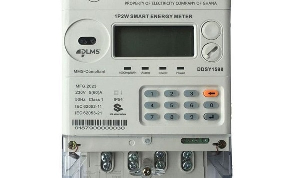The National Identification Authority (NIA) is targeting to register 85 per cent of citizens aged 15 years and above from April 29 to March 31, next year, as it rolls out its mass registration exercise for the Ghana Card.
The registration card issuance exercise for Greater Accra Region would commence on Monday and end on Saturday, July 6 2019, after which it will be extended to the rest of the country.
The exercise, which would last for two weeks in each region, would begin at Volta and Oti on July 15, 2019, Northern, Savannah and North East on August 13, 2019, Upper East and Upper West on September 12, 2019, Bono, Bono East and Ahafo on October 10, 2019.
Western and Western North would take their turn on November 11, 2019, Ashanti on December 10, 2019, Eastern and Central on February 12 and March 13, 2020, respectively.
The Executive Secretary of NIA, Prof. Kenneth Agyemang Attafuah, said this yesterday, in Accra at a press briefing on the commencement of Mass Registration Exercise.
According to the Executive Secretary, citizens below 15 years would be registered and issued with a two-dimensional bar code Ghana Cards after the stipulated time for registering citizens aged 15 years and above.
In addition, he said that citizens aged 15 years and above would receive smart, dual-interface chip-embedded cards that could be used in both contact and contactless transactions.
Prof. Attafuah added that the registration exercise would be later extended to cover Ghanaians in the diaspora following the completion of the domestic registration.
“NIA will undertake this exercise in close collaboration with Ghanaian Missions abroad and the office of Diaspora Relations at the Presidency,” he added.
He indicated that although the card was free for citizens in the country, Ghanaians living outside the country would pay a fee for the card.
Prof. Attafuah noted that the card was valid for 10 years after which every citizen would be required to renew it at a fee, adding that, “replacement of the card upon loss or destruction at any time will also attract a fee.”
He stated that it was mandatory for citizens to provide a genuine birth certificate, a valid Ghana Passport or a valid certificate of acquired citizenship as a requirement for registration and a Ghana Post Digital Address code without which citizens would not be allowed to register.
Prof. Attafuah said that relatives issued with the card could vouch for citizens without any of the mandatory documents for registration under an oath.
He noted that present false documents and information for registration and vouching for a non-citizen were offences punishable by law hence, advised citizens to refrain from that.
General News of Friday, 26 April 2019
Source: ghanaiantimes.com.gh

















